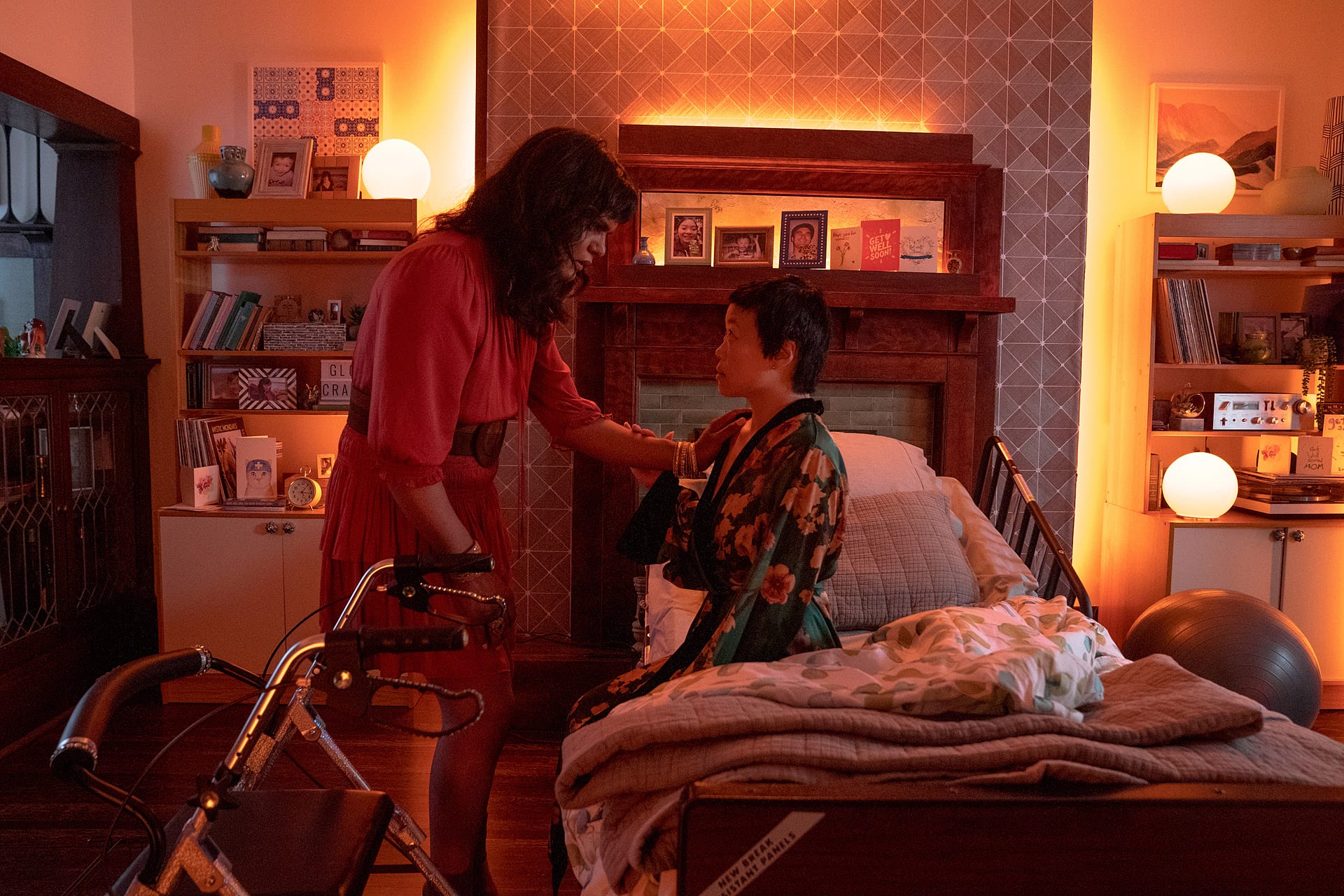Join GLAAD and take action for acceptance.
Trending
- Science Meets Style:+Life Unveils HIV Unwrapped at New York Fashion Week
- Election 2025: Virginia Gubernatorial, Lt. Governor, and Attorney General Candidates on the Record on LGBTQ Issues
- WATCH: G FLIP Talks Channeling New 80’s Rock Persona ‘Butch Springsteen’ For New Album “Dream Ride”
- Meredith Marks Hosts a Special Evening with GLAAD Ahead of the 40th Anniversary
- GLAAD Centers Black Queer Voices at United States Conference on HIV & AIDS
- From “Hacks” to “The Traitors,” LGBTQ Stars Shine at the 2025 Emmy Awards
- Fact Sheet: Debunking “Trans Terrorism” and Other False Claims in High-Profile Crimes
- Don’t miss “The Groomsmen: Second Chances” coming to your TV this Saturday!
Where We Are on TV 2023-2024

In 2023, a study from the USC Norman Lear Center and non-profit Gold House analyzed the top 100 streaming film and television titles from 2022 for Asian representation, and found 347 Asian characters, with 99 of them in major roles. The report analyzed those 99 characters and found that only one of them was queer. Though that study looks at a far different sample from this report, the result is unequivocally the same: LGBTQ Asian representation is extremely limited.
There was a welcome increase of LGBTQ Asian and Pacific Islander (API) characters on primetime scripted broadcasts this year. Six of 64 (nine percent) of LGBTQ characters were API, an increase of three percentage points from last year. These characters include bi+ doctor Mika Yasuda on Grey’s Anatomy, nonbinary dog walker Nico on ABC’s Will Trent, queer characters Khia and Cathy on The CW’s Run the Burbs, gay investigator Dhan on NBC’s Found and Dr. Devi on NBC’s Transplant.
Cable saw a slight percentage decrease of API representation year over year. Of the 77 LGBTQ characters on cable, four (five percent) are API. This is a decrease of one percentage point, and four less characters than the previous year. Two of the four characters appear on the final season of Good Trouble, while the other characters are on series that will hopefully see new seasons: Disney Channel’s Hailey’s on It! and Syfy’s Reginald the Vampire.
After an increase last year, streaming saw a decrease in API representation. Of the 327 LGBTQ characters counted on streaming, 29 (nine percent) are API. Highlights include a nonbinary character on Max’s dramedy Girls on the Bus, protagonist Sabi on the final season of Max’s Sort Of, bisexual character Ah Toy on Max’s Warrior, asexual character Sarah on the final season of Netflix’s Sex Education, and more. Warrior, Sort of and Sex Education will not be returning next year.
In totality, of the 468 LGBTQ characters on broadcast, cable, and streaming, 39 (eight percent) are API. That is a decrease of one percentage point, and a disturbing trend that must be significantly reversed.
Representation of API LGBTQ Characters
- Of the 64 LGBTQ characters counted on the five broadcast networks, nine percent (six) are API.
- Of the 77 LGBTQ characters counted on cable networks, five percent (four) are API.
- Of the 327 LGBTQ characters counted on eight streaming services, nine percent (29) are API.
- Of the 468 LGBTQ characters counted on all platforms, eight percent (39) are API.
No Data Found
Table of Contents
Share this
View Past Years’ Reports
MEASURE THE MOVEMENT
Your gift allows us to track the impact of our work, helping us better understand the state of acceptance and address the gaps with advocacy — like pushing for more trans representation in movies.
More Publications from GLAAD
A resource for media professionals covering hate crimes against LGBT people – includes a terminology guide, links to legislative statistics, a coverage archive and more.
The media are covering the lives, stories, and issues of lesbian, gay, bisexual, and transgender (LGBT) people more frequently, and often in a more fair, accurate, and balanced manner. Repeatedly, however, Asian Pacific Islander Community LGBT voices, perspectives, and opinions are left out of the picture.
The media are covering the lives, stories, and issues of lesbian, gay, bisexual, and transgender (LGBT) people more frequently, and often in a more fair, accurate, and balanced manner. Repeatedly, however, black LGBT voices, perspectives, and opinions are left out of the picture.
Community organizations play a vital role in responding to sensational sweeps coverage with their own anti-defamation campaigns. With this Sweeps Weeks Toolkit, GLAAD encourages community members to contact stations that air sensational coverage about the LGBT community and tell them how such stories spread inaccurate or defamatory myths about us.












